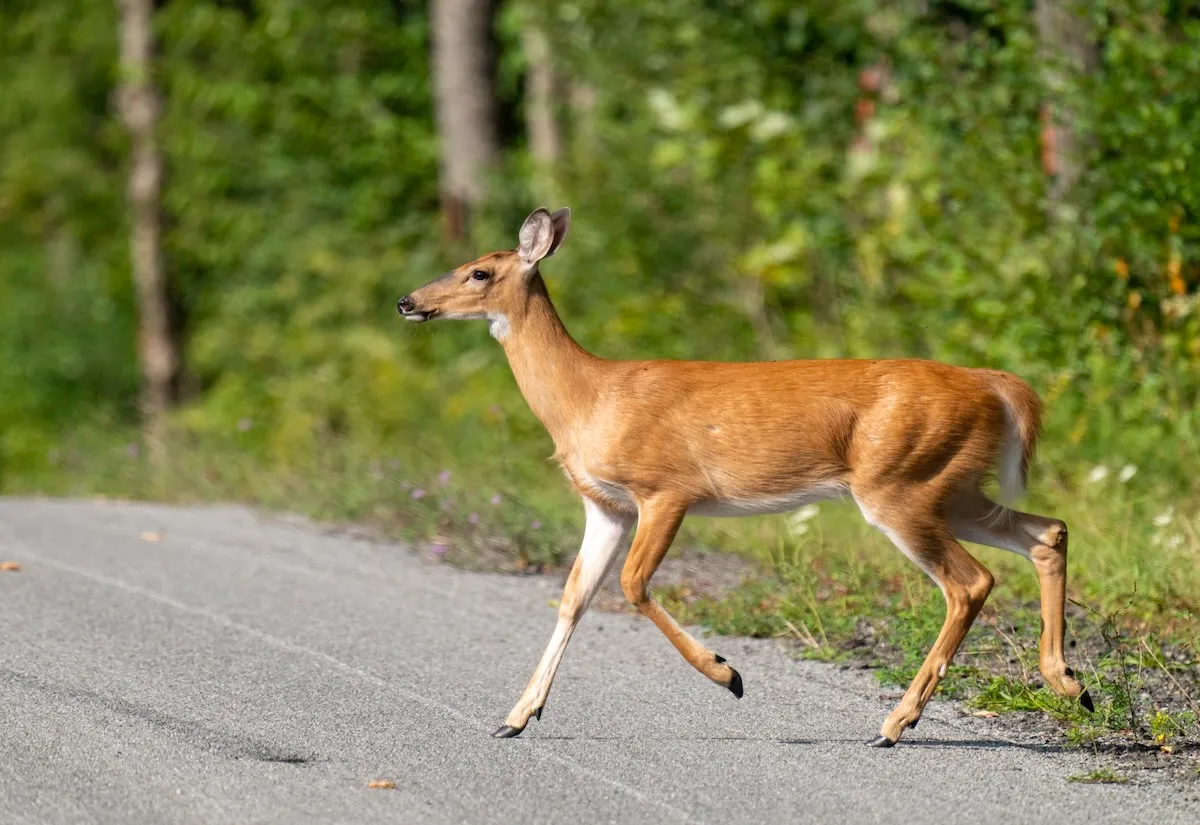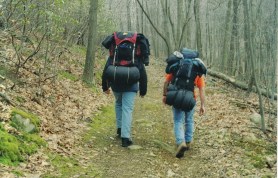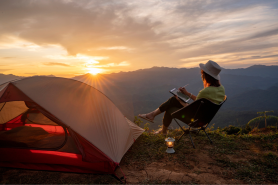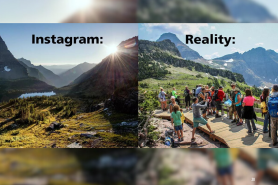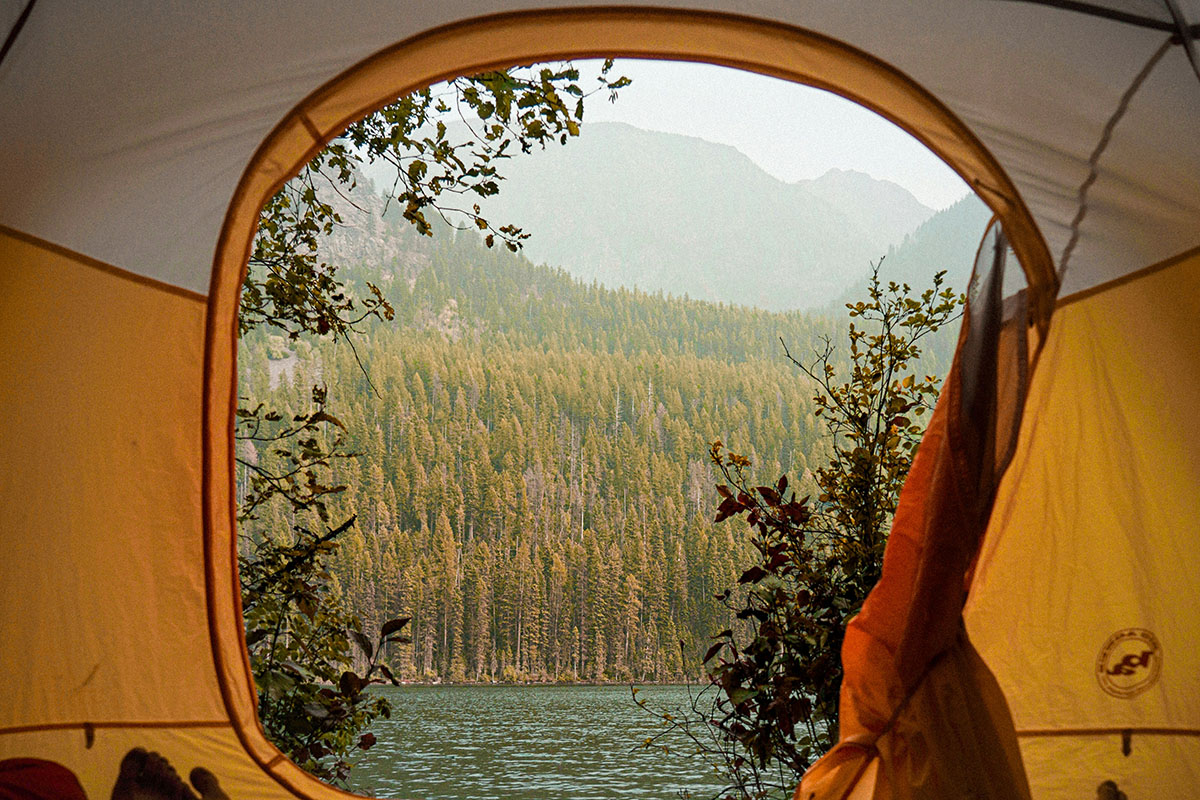

We all know a hammock is a wonderful and relaxing way to spend your free time, swaying gently in the breeze, catching some sun, or reading a book. But is it a viable option for sleeping in the wilderness?
Videos by Outdoors
In the age-old debate of hammock vs. tent camping, there’s plenty to be said for both sides.
You probably don’t need a reminder, but here are the definitions, just in case:
- Hammock: A suspended bed made from fabric, typically stretched between two points, such as trees or posts.
- Tent Camping: A portable shelter made from lightweight materials, supported by a frame of poles and anchored to the ground with stakes or guy lines.
In this guide, we will explore the advantages and disadvantages of both hammocks and tents, and you can decide which one is the winner. Let’s take a closer look.
This post contains affiliate links. Outdoors.com may earn a commission when you make a purchase through these links. Thank you for your support.
Ease of Setup
As we will discover, there are several advantages to both hammocks and tents that will make your camping trip a memorable experience.
First, hammocks can be hung almost anywhere, so your hammock setup should be a breeze. All you need to do is find two sturdy posts or trees at a suitable distance apart, then you’re in business. Next, wrap the tree straps around each tree at a height that allows your hammock to hang comfortably. Then, attach the hammock straps to the tree straps using the provided attachment points. Finally, secure the hammock to the hammock straps, adjusting the tension as needed.
You can always find new and interesting places to sling your hammock, even in scenic beauty spots that may be inaccessible to tent campers. Is the ground too uneven to pitch a tent? Not a problem if you have a hammock.
Another advantage is that you don’t need to carry around a bulky camping mattress or sleeping pad; you can enjoy a comfortable night’s sleep without one.
On the other hand, camping in a tent is a more familiar experience for most outdoors lovers, and setting up a tent is usually straightforward process, especially if you have done it a few times.
Although it is a bit more involved with more elements to consider, including guy lines, a rain fly, and a footprint, you can still set up a tent quickly and efficiently. Once it is set up, you can enjoy your own private space at campsites or out in the wilderness.
Advantage: hammock
Dealing With the Elements
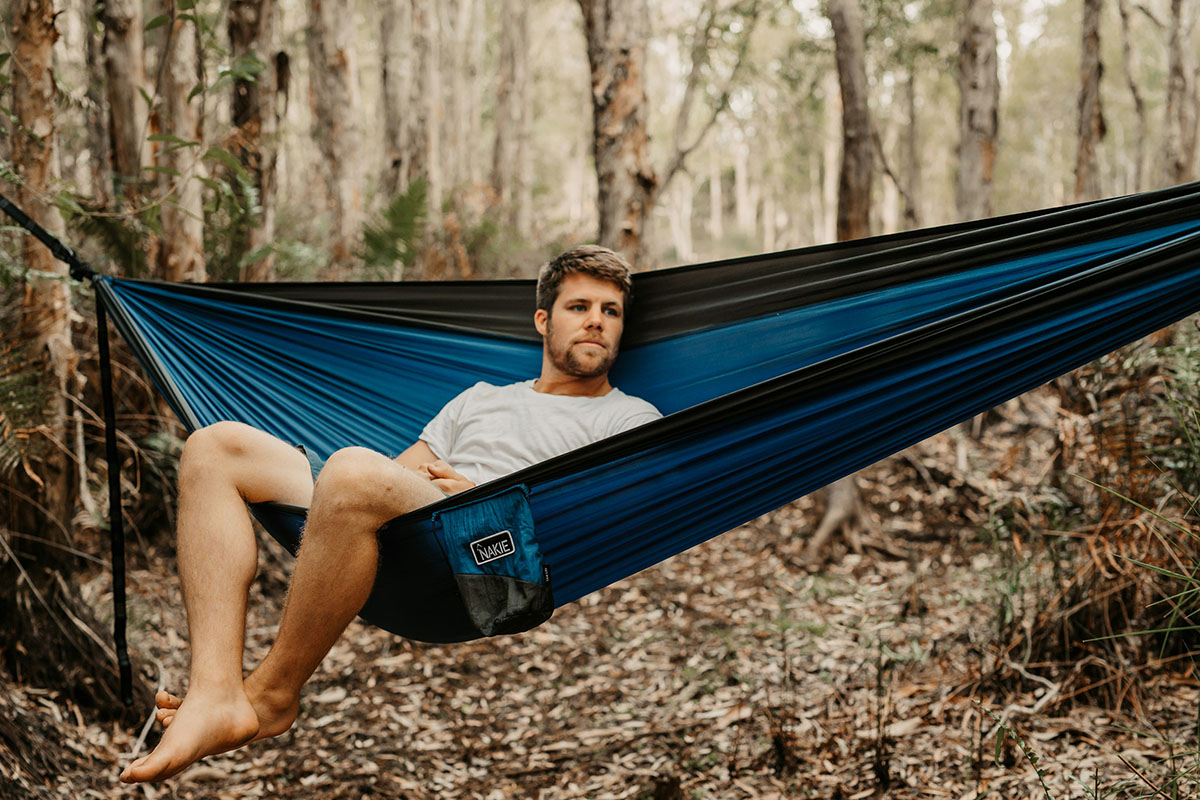
Many people’s first reaction to the idea of sleeping in a hammock is “what about the rain?”
You may also wonder about their protection against mosquitos, cold weather, or wind. Tents provide excellent protection against all of the above, but in a hammock, you will be a little more exposed.
For most lightweight hammock models, you can order over quilts and under quilts to provide warmth and protection from wind. You can buy tarps and mosquito nets to go over the top, too. It’s also worth mentioning here that hammocks are usually quick to dry out if they happen to get wet.
Good quality camping tents are made from strong and sturdy materials, such as ripstop nylon and polyester, which are designed specifically to deal with bad weather.
The rain fly covers the tent, keeping you and your fellow campers dry and cozy inside. The tent’s footprint provides extra protection between you and the ground to avoid heat being lost.
A good tent can provide a comfortable shelter for you, your friends, your dogs, and your belongings, no matter what the weather is like.
Advantage: tent
Size and Weight
An ultralight tent weighs a little over two pounds. A heavier-duty tent can easily weigh six pounds, eight pounds, or more. Contrast that to a hammock. Even a heavy-duty hammock will weigh two pounds at most, making hammocks the clear winner in this category.
You will need to carry the necessary hammock accessories, such as a mosquito net, a rain tarp, quilts, or some combination of the above, which will add a little bulk to your pack. This will still be a lighter load than a tent, which will include more heavy equipment, such as tent poles.
Advantage: hammock
Sleeping Comfort and Space
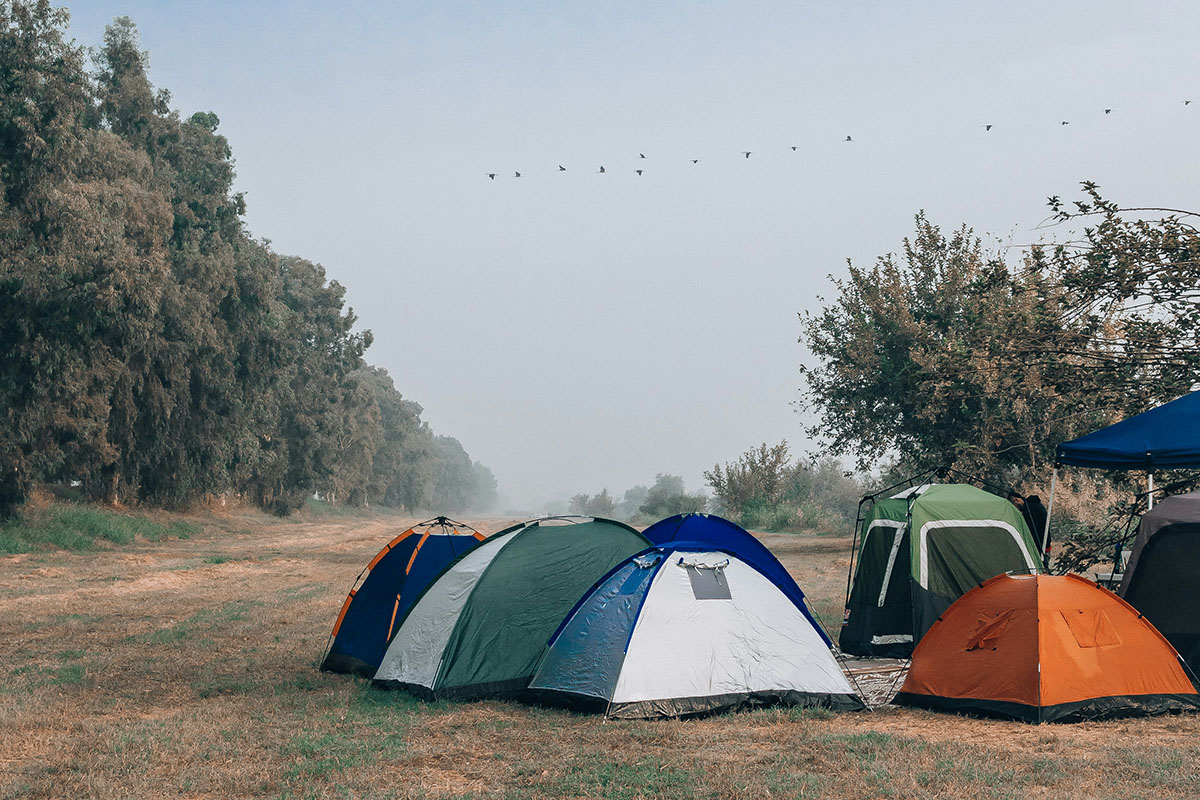
Your sleeping preferences will be personal to you, but there are several benefits for both sleeping methods.
Sleeping in a swinging hammock underneath a canopy of trees means you can enjoy the peaceful sounds of nature as you fall asleep. You don’t need to worry about rocks or uneven ground, and the gentle rocking motion of the hammock can help you to fall asleep.
Hammock campers will also tell you that a hammock is a handy item to throw in the car for a car camping trips, so you can use it for reading or sunbathing during the day.
Tents, on the other hand, offer an all-round superior outdoor sleeping experience. You will have privacy and a better living space. You can shelter from the weather, change clothes in peace, and even hang out and read a book in your own happy space.
For a good night’s sleep in a tent, you will also need a quality quilt and sleeping bag and a sleeping pad.
Advantage: tent
Price
For about $200, you can get a reasonably dry summer tent. For $400 or $500, you can get a well-built all-season tent. For $800 or $900, you can get a tent that will feel like a little slice of luxury.
Hammocks are a lot cheaper. For $50 or $60, you can get a nice rig for camping on dry summer nights. For $200, you’ll be set up for rain and mildly cold weather. For around $500, you can have some of the best hammock sets around.
Advantage: hammock
Best Hammocks – Recommendations
Our recommendation for an all-in-one camping hammock is the Kammok Mantis. It comes with everything you need for your first hammock camping trip for $270.
Best Tents – Recommendations
There are endless choices and options for tents, and your perfect tent will depend on the weather conditions you will likely face, the number of people in your camping party, and your budget.
Browse our lists to see what tent fits your needs.
Final Thoughts
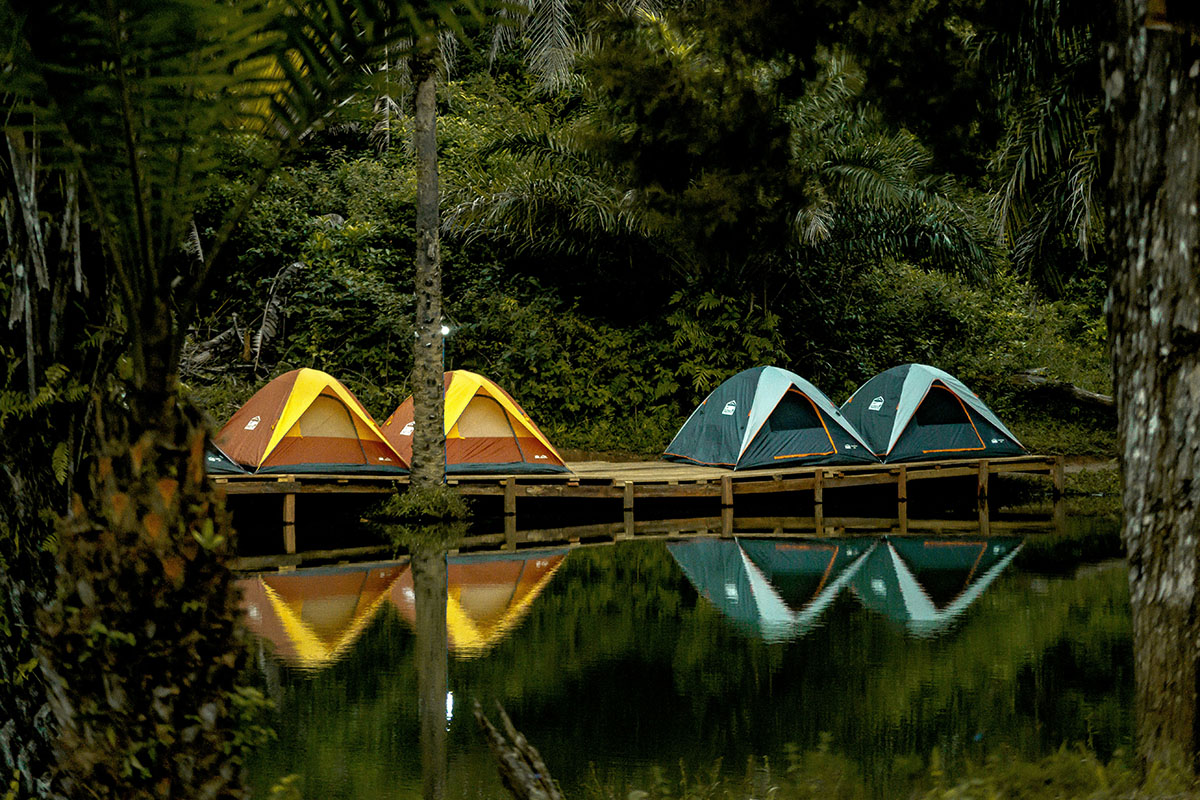
All things considered, we’ve looked at several aspects of performance to determine whether hammocks or tents are the best option for exploring the great outdoors.
For price, weight, and packability, a hammock is a great piece of camping gear that is fun for adventures and looks super cool. If you’ve never tried a night in a hammock, why not give it a go?
However, it’s hard to argue with the practicality and security that a tent offers. The extra space and protection from the elements always makes a tent a good choice for any adventure.
